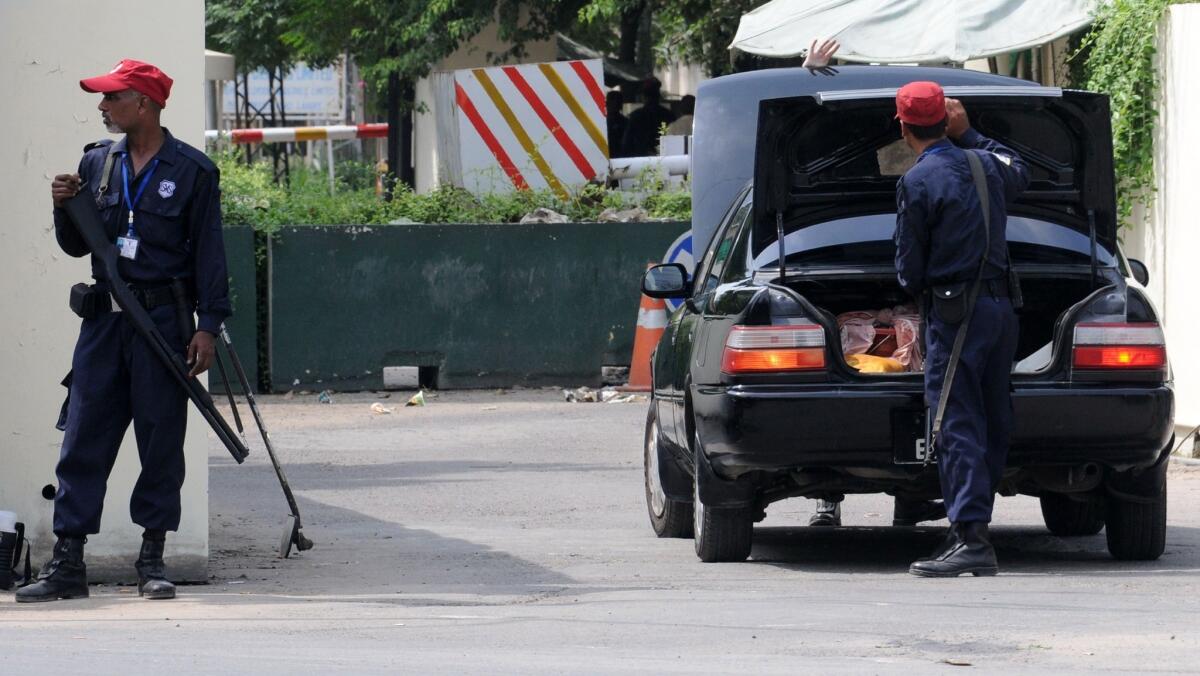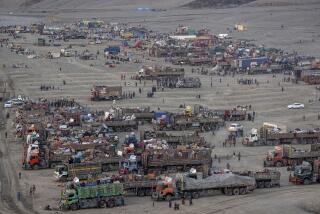U.S. cites specific threat for decision to close consulate in Lahore

ISLAMABAD, Pakistan – The decision to close the American consulate in Pakistan’s cultural capital of Lahore was made in response to a specific threat, a U.S. spokeswoman said Friday, without disclosing any details.
A statement Thursday from the State Department announcing the closure was accompanied by a broader warning that Americans should avoid traveling to Pakistan.
Pakistani analysts said the U.S. moves could further erode the country’s battered reputation abroad, but added they weren’t surprised by the decisions given the large number of attacks nationwide in recent weeks as insurgents try to intimidate Pakistan’s new government.
The latest threat is specific to Lahore, said U.S. Embassy spokeswoman Meghan Gregonis. It was not immediately clear whether the danger was linked to a broader advisory this week about a possible Al Qaeda attack that prompted Washington to temporarily close more than 20 diplomatic facilities in Africa and the Middle East.
Non-essential consulate staff in eastern Lahore, Pakistan’s second-largest city, were moved temporarily to the capital, Islamabad, as a precaution. The U.S. will continue to monitor intelligence reporting, she said, and it’s not known when the consulate – which was already scheduled to close from Thursday to Sunday for the Muslim holiday of Eid al-Fitr – will reopen.
Gregonis declined for security reasons to say how many staff members were affected.
The State Department’s travel warning Thursday said the presence of foreign and indigenous terrorist groups poses a potential danger to U.S. citizens throughout Pakistan.
Members of the Lahore business community said the U.S. move was unwelcome, if understandable.
“This will affect the economy, stock exchange, remittances and further devalue the rupee,” said Mian Abuzar Shad, vice president of the Lahore Chamber of Commerce and Industry. “The U.S. has every right to protect its diplomatic staff. We are a peace-loving nation. Any threat or attack on U.S. citizens in Pakistan will earn us a very bad reputation.”
But Shad said the U.S. also has contributed to Pakistan’s plight by supporting past dictators and launching drone attacks for its short-term benefit, which he said undermined democracy, rule of law and the economy.
In recent weeks, Pakistan has issued its own warnings and stepped up security in the capital and elsewhere.
“The government of Pakistan has itself issued a red alert for the entire country,” said Nasim Zehra, an Islamabad-based analyst. “There have been 56 bomb blasts and hundreds of threats in the last 60 days.”
The spate of attacks has angered and unnerved ordinary Pakistanis long inured to danger.
“The government has totally failed to provide security for the citizens,” said Mohammad Asad, a university student in Islamabad. “Police can’t protect themselves. How will they protect us?”
On Friday, gunmen killed at least 10 people and wounded 30 in Quetta, the capital of western Baluchistan province, local media reported. The target was allegedly Ali Madad Jatak, a former provincial minister, who escaped unharmed as he emerged from Friday prayers at Quetta’s Jamia Farooqia mosque.
This followed a suicide bombing by the Pakistan Taliban on Thursday that killed 30 people at a police funeral in Quetta, a hub for Islamic militants, sectarian and separatist insurgents.
Adding to regional jitters, India’s capital New Delhi was placed on high alert Friday after police received intelligence that Hafiz Saeed, reputed mastermind of the 2008 Mumbai attack that killed 166 people, was planning an attack on the Red Fort, one of the capital’s most famous monuments, local media reported, citing security sources.
ALSO:
2 British women attacked with acid in Zanzibar
Turkish Airlines pilot, co-pilot kidnapped in Lebanon
Philippine leaders want U.S. troops back as bulwark against China
Special correspondent Khan reported from Islamabad and Magnier reported from New Delhi.
More to Read
Start your day right
Sign up for Essential California for news, features and recommendations from the L.A. Times and beyond in your inbox six days a week.
You may occasionally receive promotional content from the Los Angeles Times.






